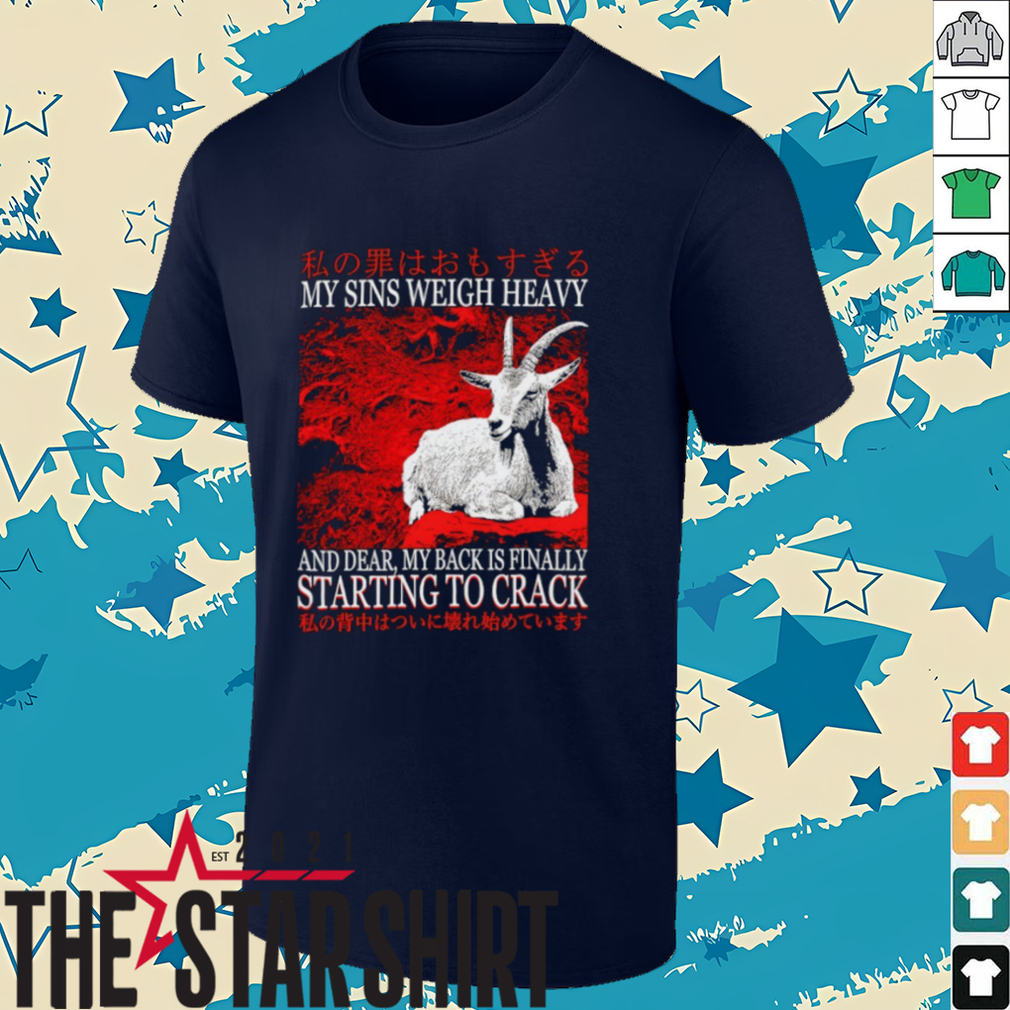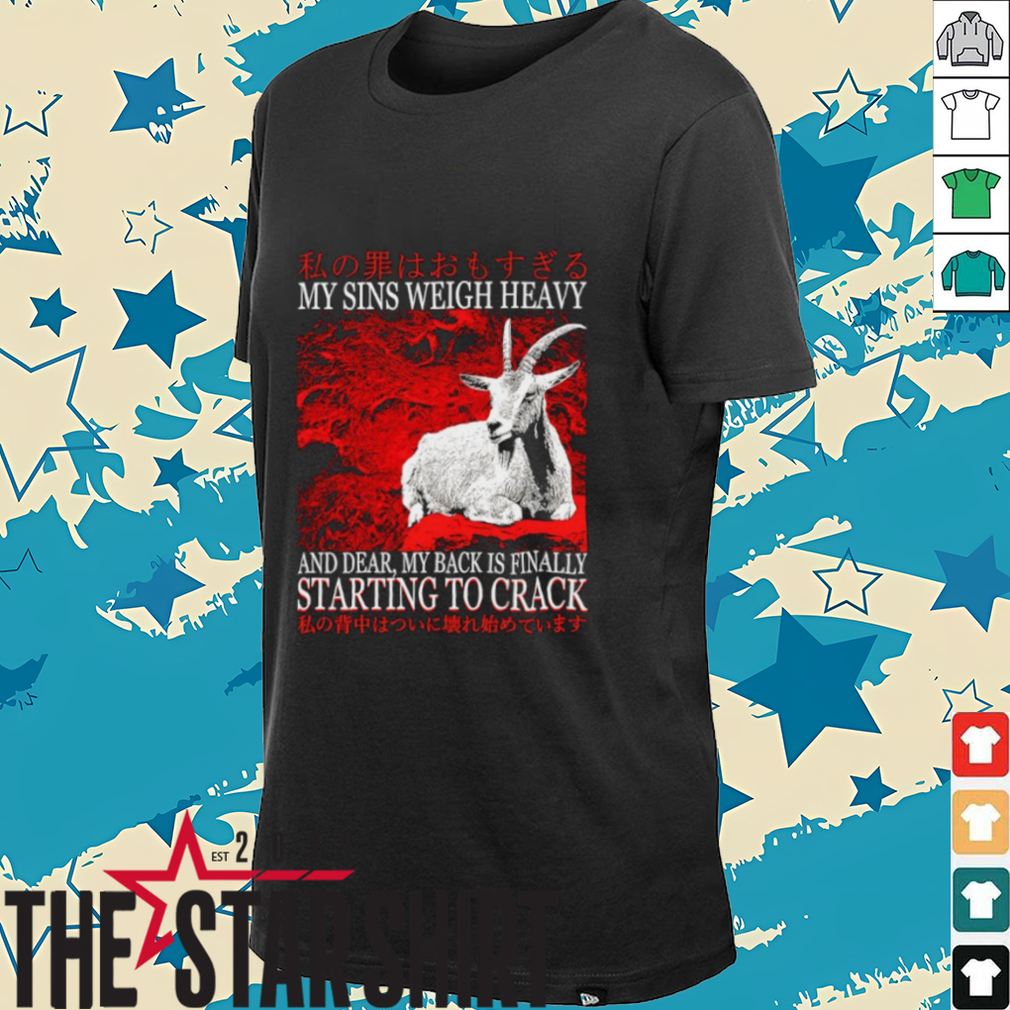“My Sins Weigh Heavy”: Exploring the Japanese Context of Burden and Redemption in a Shirt
The phrase “My sins weigh heavy and dear, my back is finally starting to crack” resonates with a universal sense of burden and the toll that past actions can take. When paired with a Japanese aesthetic on a shirt, it invites a deeper look into how concepts of guilt, responsibility, and atonement are viewed within Japanese culture and philosophy. While the direct translation might not be a common Japanese idiom, the underlying sentiment aligns with themes frequently explored in Japanese art, literature, and religious traditions. This shirt speaks to those who carry their past with them, acknowledging the weight of their choices and the physical manifestation of that internal struggle. It’s a powerful statement, merging raw personal introspection with a culturally rich visual. For those who appreciate designs with profound meaning, the Indiana Fever 2025 WNBA Commissioners Cup Champions Graphic Shirt offers a celebration of achievement and pride, albeit in a different context.
The Weight of Guilt: A Universal and Japanese Perspective
The idea of “sins weighing heavy” is a concept deeply embedded in many belief systems, symbolizing the psychological and spiritual burden of wrongdoing. In a broader sense, this burden can be seen as a form of karma, where actions (both good and bad) have consequences that must be borne. In Christianity, for example, the “weight of sin” is a core concept, emphasizing the need for redemption and absolution. For those who believe, unforgiven sin can lead to a “cracked” or broken spirit. While traditional Japanese religions like Shinto and Buddhism approach “sin” (罪 – *tsumi*) and purification differently from Abrahamic faiths, the concept of moral responsibility and the consequences of one’s actions are paramount. Shinto emphasizes purity and pollutions (*kegare*), which can accumulate through actions and require ritual purification (*harae*). Buddhism, on the other hand, centers on karma and the cycle of suffering, where actions dictate future experiences. Therefore, the phrase on the shirt, though perhaps Western in origin, finds a strong echo in the recognition of a moral or spiritual burden within Japanese thought, leading to a sense of internal strain or “cracking.”
“My Back is Starting to Crack”: Symbolism of Physical Manifestation
The phrase “my back is finally starting to crack” serves as a powerful metaphor for the physical and mental toll of carrying a heavy burden. The back, as the body’s central support structure, symbolizes strength and resilience. When it begins to “crack,” it represents the breaking point, the moment when the weight becomes unbearable. This isn’t necessarily about literal physical pain, but rather the overwhelming strain of guilt, regret, or responsibility. In many cultures, physical ailments are seen as manifestations of emotional or spiritual distress. The imagery here is particularly poignant: the weight of “sins” (or past mistakes, burdens, worries) is not just abstract but has a tangible, debilitating effect, pushing one to the brink. This vivid imagery is what makes the shirt so impactful, appealing to anyone who has felt overwhelmed by their personal history and the accumulated stresses of life.
The Appeal of Introspective Streetwear and Japanese Aesthetics
This “My sins weigh heavy” shirt taps into a growing trend of introspective and emotionally resonant streetwear, often combined with aesthetics from different cultures. Japanese artistic styles, with their emphasis on minimalist design, elegant calligraphy, and often profound philosophical undertones, lend themselves perfectly to such expressions. The juxtaposition of a deeply personal and vulnerable statement with the clean, often serene lines of Japanese design creates a compelling visual. It suggests a journey of self-reflection, perhaps even a subtle hint of melancholy or acceptance, which aligns with common themes in Japanese literature and art that explore human suffering, impermanence (*mono no aware*), and resilience. For wearers, this shirt is a way to express their internal landscape outwardly, inviting contemplation and perhaps even a shared understanding with others who recognize the profound weight of human experience. It’s a statement piece that encourages thought and conversation, making it more than just an item of clothing.






























